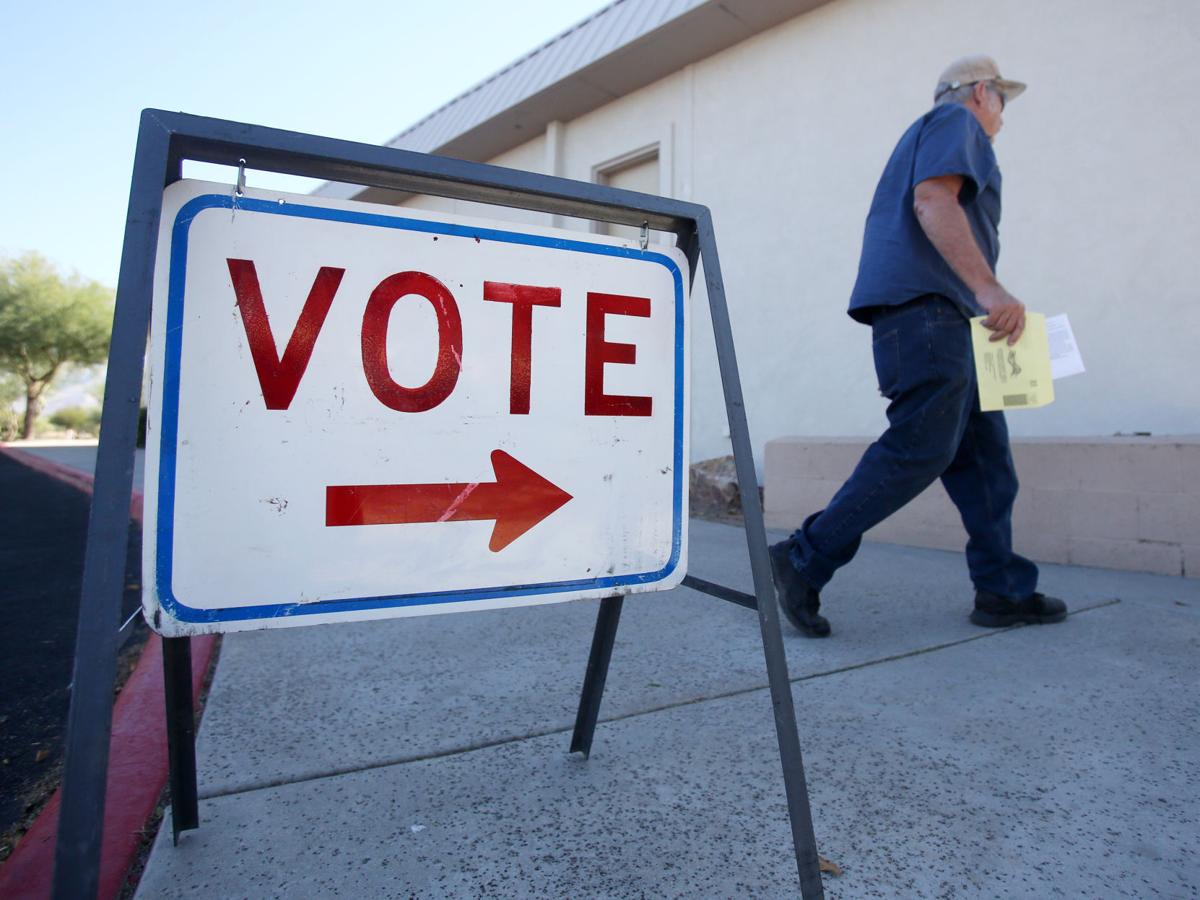The following column is the opinion and analysis of the writer:
There is no greater obligation of a sovereign nation than to protect the health, safety and welfare of its citizens while ensuring all fundamental rights are respected. The Pascua Yaqui Tribal Council takes that responsibility seriously. We also recognize the importance of ensuring that our tribal members have equal access to the ballot in tribal, state and federal elections — our members must be able to cast a ballot safely.
This is even more true in light of COVID-19, which has disproportionately impacted Native Americans. We recognized our obligation to our members and made adjustments for Tribal elections this June by offering extended in-person early voting and drive-thru voting on Election Day. So, why won’t our longtime Pima County Recorder, F. Ann Rodriguez, work with us to ensure that Yaqui voters have the same access to vote safely in state and federal elections?
From 2010 to 2016, the Pascua Yaqui Tribe had an in-person early voting location on the reservation, although the early voting location was only offered for a fraction of the time that other off-reservation early voting locations were offered. For example, for the 2016 election, off-reservation early voting sites that were not in county buildings offered an average of 95 hours of in-person early voting, whereas the Pascua Yaqui Tribe’s early voting site was only offered for a pitiful 32 hours.
In 2018, just a month before the August primary, Rodriguez informed us the county would no longer provide in-person early voting on the reservation. As a result of the closure, Tribal members living on the reservation had to travel for two hours, round-trip, by bus to access an in-person early voting site.
It is no secret that Native Americans in Arizona have had to fight for access to the ballot. Historically, Native Americans in Arizona were not able to vote until 1948, because of a calculated application of state law to deny Native Americans the right to vote, 24 years after Congress passed the Indian Citizenship Act. Congress passed the Indian Citizenship Act after realizing the injustice of Native American veterans returning from World War I to a country that did not allow them to vote for the leaders that were sending them to war.
Native Americans in Arizona had to wait longer and only achieved the right to vote after two World War II veterans filed a lawsuit to challenge the state of Arizona denying them the right to register to vote. That legacy is not forgotten and continues today. Presently, Native Americans serve in the military at a higher rate than any ethnic group, but they continue to return home to a country that does not guarantee equal access to the ballot for them or their tribes. This is true for Native Americans in Pima County who experience unequal access to the ballot.
Native Americans in Pima County have less access to in-person early voting and less access to polling locations generally. Native Americans in Pima County also have far less access to transportation, both private and public, than non-Native communities. The disparity in access to polling locations exacerbates the effects of socioeconomic conditions and creates a higher barrier for Native Americans to participate in elections than non-Native Americans in Pima County.
As a result, Native votes and voices are lost, including Yaqui votes and voices.
The tribe has made repeated requests to restore the early voting site. We have reached out via letters and even had the recorder out to our reservation for in-person meetings. And despite public support from nearly 1,000 community members who have signed a petition in support of the restoration of the early voting site,Rodriguez has still refused to provide Pascua Yaqui voters with an early voting location.
Failure to provide an early voting location is not only a continuation of Arizona’s history of denying Native Americans equal access to the ballot but, in light of COVID-19, it is an act of conscious disregard for the health and safety of the Pascua Yaqui Tribe.
The consequences of denying Yaqui voters equal access to early voting will place our tribal members at risk.
Those without vehicles will have to risk a two-hour bus ride to vote early in person. Tribal members with preexisting health conditions will have to decide whether to risk leaving the safety of their community to vote at an off-reservation early voting location or risk voting in their community on election day, where there may be crowds and increased difficulty to socially distance themselves.
It is not only unfair and unreasonable to ask Yaqui voters to take those risks when voters in Tucson, Ajo or elsewhere have access to in-person early voting, but it also violates the fundamental principles set forth in the Voting Rights Act to ensure equal access to all aspects of voting.
We, the Pascua Yaqui Tribal Council, can no longer make requests in private. An early voting location on the reservation should be provided because it is the right thing to do, both morally and legally.
Yaqui voters living on the Pascua Yaqui reservation deserve equal access to early voting and they deserve in-person voting opportunities in order to reduce the spread of COVID-19.
Our tribal members want to participate in elections and must have an opportunity to have our voices heard.





